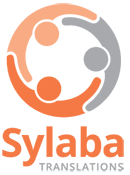Within the medical field, language barriers and medical document challenges can lead to serious problems. Imagine the consequences of vital information in a medical document being misinterpreted due to mistranslations. We’ll delve into the eight costly mistakes healthcare providers make when they don’t engage professional medical translation services.
We’ll highlight the potential consequences of these mistakes and underscore the reasons to opt for professional medical translations to avoid them. Don’t risk your patients’ wellbeing!
Defining Medical Translation
Medical translation is a specialised process involving the accurate translation of medical documents such as patient records, prescriptions, research papers, and more, from one language to another. This demands a deep understanding of medical terminology.
The Eight Costly Mistakes of Not Hiring Medical Translation Services
1. Misdiagnoses and Incorrect Treatment
Failing to use professional medical translation services can lead to errors in translation which can result in misdiagnoses and incorrect treatment, endangering patient safety.
2. Life-Threatening Medical Mishaps
Misunderstandings in medical translations can have serious consequences, potentially causing life-threatening situations due to misinterpretation or loss of vital information.
3. Financial Losses
Neglecting medical translation services can result in financial losses due to operational inefficiencies, legal issues, and a missed opportunity to serve a broader patient demographic.
4. Legal Liability
Without professional medical translation, healthcare providers can find themselves entangled in legal liability issues stemming from miscommunications or non-compliance with language access regulations.
5. Ineffective Patient-Provider Communication
Poorly translated documents hinder communication between patients and providers, affecting the quality of care and patient trust.
6. Missed Opportunities
Healthcare providers miss out on the opportunity to tap into diverse patient demographics, limiting their practice’s growth and diversity.
7. Regulatory Non-Compliance
Neglecting language access regulations can result in fines and legal complications for healthcare organisations.
8. Reputation Damage
Failing to provide accurate and professional medical translation can tarnish a healthcare provider’s reputation, impacting their ability to attract and retain patients.
How Can You Avoid These Mistakes?
To avoid the eight costly mistakes associated with neglecting medical translation services in healthcare, consider implementing the following strategies:
Invest in Professional Medical Translation Services:
Engage reputable, experienced medical translation services that specialise in healthcare documents. These services employ skilled translators who understand medical terminology and ensure precise, accurate translations.
Training and Education:
Provide training and education to your staff on the importance of medical translation and language access regulations. Ensure that all team members are aware of the potential consequences of translation errors.
Use Technology:
Implement translation technology and tools to assist in the translation process. These tools can help maintain consistency and accuracy in medical translations.
Establish Clear Protocols:
Develop clear protocols and guidelines for handling translated medical documents. This includes document storage, retrieval, and sharing with patients and healthcare providers.
Regular Quality Assurance:
Enforce a robust quality assurance process to review and verify all translated medical documents. This ensures that they meet the necessary standards for accuracy and compliance.
Collaborate with Multilingual Staff:
If possible, have multilingual staff on hand who can assist with communication in multiple languages. They can bridge language gaps and help ensure that patients receive the right care.
Legal Compliance:
Stay up to date with language access regulations in your region and ensure your organisation complies with them. This may involve offering translation services to patients who require them by law.
Cultural Sensitivity:
Consider cultural sensitivity in your translations. Different cultures may have varying understandings of medical terms and practices, and it’s crucial to account for these differences in translation.
Patient Engagement:
Encourage patients to provide feedback on the quality of translation services. Act on their input to continuously improve your medical translation processes.
Regular Audits:
Conduct regular audits to assess the effectiveness of your medical translation efforts. Identify any areas that need improvement and make necessary adjustments.
Continuous Improvement:
Medical translation is an ongoing process. Continuously assess your translation services, learn from any past mistakes, and work to enhance the quality and efficiency of your translations.
Use NAATI Translators:
In regions where the National Accreditation Authority for Translators and Interpreters (NAATI) accreditation is recognised, it’s advisable to employ NAATI-certified translators. NAATI certification ensures a high level of competence and professionalism in translation services. This can be especially crucial when dealing with sensitive medical documents, as it provides an extra layer of quality assurance in the translation process. NAATI-certified translators are recognized for their proficiency and accuracy in translating various languages, which is particularly valuable in healthcare settings.
By implementing these strategies, healthcare providers can significantly reduce the risk of the costly mistakes associated with neglecting medical translation services. This, in turn, leads to improved patient care, legal compliance, and a positive reputation in the healthcare industry.
Why You Should Opt for Professional Medical Translation Services
Engaging professional medical translation services can significantly mitigate these issues. Here’s why:
- Precision and Accuracy: Medical translators are experts in medical terminology, ensuring precise and accurate translations that leave no room for misunderstandings.
- Regulatory Compliance: Professional translation services guarantee adherence to regulatory standards, ensuring your organisation stays on the right side of the law.
- Improved Patient Care: Effective communication through translated documents enhances patient outcomes and overall satisfaction.
- Wider Patient Reach: Translation services open the door to a more diverse patient base, creating a healthcare environment that is inclusive and culturally sensitive.
Conclusion
In healthcare, the need for precision and accuracy cannot be overstated. Neglecting medical translation services can lead to the eight costly mistakes we’ve outlined, with far-reaching consequences. The stakes are high, and the impact is profound. To safeguard patient well-being, financial stability, and legal compliance, it is essential to invest in professional medical translation services. Don’t make the costly mistake of overlooking this critical aspect of healthcare communication. Act now to ensure your medical documents are translated accurately and professionally by experts who grasp the importance of clear, precise, and error-free communication. Your patients and your organisation will be the ultimate beneficiaries. Contact us to discover how our medical translation services can enhance your healthcare practice or organisation.
“In the realm of healthcare, effective communication saves lives, and medical translation services play a vital role in this endeavor.”
Related Posts

Get a quote today
"*" indicates required fields
Subscribe today to receive the latest insights and updates from Sylaba Translations









